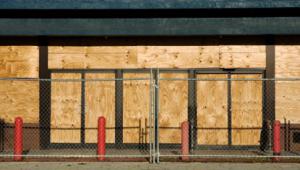The government has finalised the amount that councils will have to pay to take control of council house rents in their area, with payments lower than originally planned.
The buyout forms part of reforms to the Housing Revenue Account, which currently pools all council house rents nationally and then redistributes them.
Under the changes, which apply from April 1, councils will retain their rents in exchange for taking on a proportion of the historic housing debt.
Authorities that currently pay in more to the central pot than they receive have to pay to leave the HRA.
The Department for Communities and Local Government confirmed yesterday that 136 councils will make a payment to the government on March 28. The largest will be £433.6m from the London Borough of Wandsworth, but this is less than the £435.9m the council was expected to pay when the proposals went out for consultation last November. Payments are also lower for most other authorities.
The DCLG said the reductions reflected ‘changes and updates to the data used in the self-financing model, not changes to the underlying methodology’.
In a letter to councils, Peter Ruback, the department’s deputy director of HRA reform and decent homes, said the debt being inherited by all but two councils was lower than in the consultation.
Other authorities making large payments are Birmingham City Council (£336m) and Dudley Borough Council (£335.6m).
Councils will borrow from the Public Works Loans Board to make the payments, paying lower interest rates set specifically for these loans.
The PWLB is setting up a dedicated website, where authorities can input details of the loans they require and finalise their applications on March 26.
Another 33 councils will be given payments from the government to reduce their inherited debt, as they are subsidised under the existing system.
The highest of these will be paid to the London Borough of Hackney, at £752.6m. More than £500m will also be paid to the London Borough of Newham and Sheffield City Council.
Responding to the announcement, CIPFA said that councils must now finalise viable HRA business plans to deal with the debt that they will take on.
The DCLG has said that there will be no central guidance on how to produce these plans, which CIPFA warned could ‘leave authorities exposed to all of the risks associated with such an extensive and radical change’.
Alison Scott, assistant director for local government, added: ‘Everything is now in place for the start of self-financing at the end of March. This is a massive change for local authority housing and offers a unique opportunity for authorities to develop financial strategies to meet the future housing needs of tenants and communities.’





















